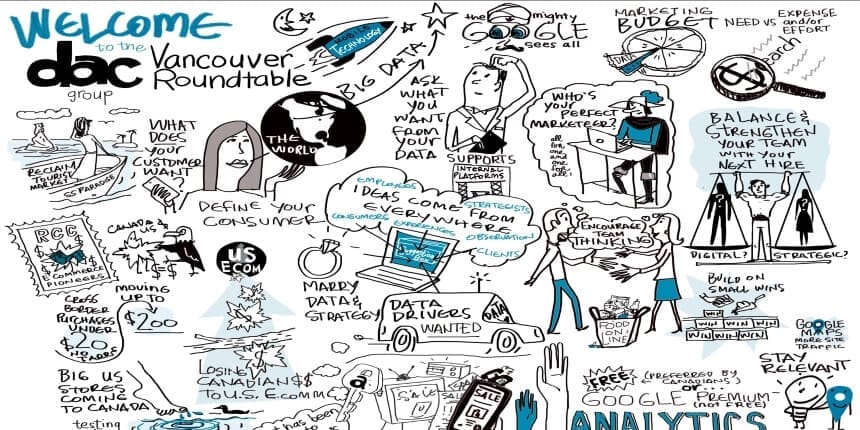
 What-the-rugby-world-cup-taught-me-...
What-the-rugby-world-cup-taught-me-... If you’re anything like me, you are loving every minute of the Rugby World Cup so far. The shock win by Japan over South Africa was a dramatic start, and with both England and Scotland on great form (even despite the loss to Wales last weekend) I’m a happy man!
Then I read Ross’ post on what he learnt about digital marketing from football and I got to thinking – what can I take away from the rugby that might help inform my digital marketing?
- You’ve got to do the fundamentals well
What separates a team like the All Blacks from, say, Scotland?
They always manage to make the fundamentals of the game look flawless.
Even when the Kiwis are having a bad day, they still manage to complete their passes, make their tackles, and kick between the posts. We’d all be pretty surprised if we saw New Zealand screw up these key fundamentals.
Compare that to Scotland. When the fundamentals are done well, they’re a formidable team. But more often than not they’re about as coordinated as this try celebration:
The same can be said when it comes to digital marketing or, in fact, any business activity – you need to do the fundamentals well.
You might have a great idea for a piece of content, but if it’s written badly and contains lots of grammar mistakes, then it’s not going to work very well. The best social media marketing strategy in the world will still fall down if you don’t know how to use hashtags. And an amazing website will never be seen if you haven’t mastered your SEO.
On the flip-side, you could have a fairly uninspiring marketing strategy but still do the fundamentals well and you’d probably see some success.
- You all need to be pushing in the same direction
Hopefully this one should be pretty obvious from a rugby perspective. To get the try a team all needs to be carrying the ball in the right direction.
It’s slightly less obvious when the same thinking is applied to digital marketing. Yes, pulling in the same direction is the best way to achieve results, but does everyone know which the right way is?
This is where a strong brand, company ethos, and mission statement all come into play. If everyone in your business knows not just what your marketing team is doing but why, they are more likely to buy-in to your marketing strategy. They might even contribute!
But more importantly, staff across your entire organisation will be able to embody your marketing strategy at every customer, client and supplier touchpoint.
- A little creativity goes a long way
If there’s anything that the All Blacks have taught us, it’s that a little creativity can get you a long way…literally. A smart handoff at the breakdown can create a lot of space for a fast player, and that can quickly turn into a match-winning try. While an accurate kick-and-run can be the difference between winning the tournament and being knocked out in the first round.
The same goes for digital marketing. Without a little creativity you’ll never create the space you need to get ahead of your competition.
Digital marketing could be seen as a rather dry activity – optimising your SEO, running paid advertising, and writing content. But by bringing a little creativity to it you can find much needed space in an otherwise oversaturated market.
For example, you might sell marketing automation software, targeting keywords like “marketing”, “tools”, and “software”. But you’ll be competing against thousands of other companies all doing the exact same thing, targeting the exact same keywords.
However, if you focused your keywords on the challenges your customers face and the benefits of your software, you may well find that there is just as much search volume, but a lot less competition.
The same goes for campaigns, content, and social media. If you’re doing the same as everyone else then you’ll never stand out, never be differentiated, and, ultimately, never be able to seize any market share from your competitors.
- Stamina is key to winning
Argentina are a great team, but the reason they lost in their opening match against New Zealand simply comes down to a lack of stamina. Both teams managed the fundamentals well, both had spurts of creativity, and, in fact, Argentina were looking dominant in the first half. So what happened?
They got tired. They put everything they had into the first half, holding very little back for the second. The Kiwi players, however, are renowned for their fitness, keeping their game tight in the second half to take the victory.
Digital marketing, like rugby, takes sustained effort. There’s no point coming up with an amazing marketing strategy and only doing the first half of it well. You need to keep the momentum going, keep everyone pushing in the same direction until the goal has been reached. Even then, you still need to quickly restart and manage the process all over again.
Digital marketing, unlike a TV advert, for example, requires constant effort and vigilance. Take your eye off the ball for a minute and you could end up in real trouble. I’m sure Susan Boyle’s digital marketing team were very busy leading up to her album launch, but does that excuse #susanalbumparty?
- Review and improve
A sizeable chunk of rugby strategy happens off the pitch. By watching replays of their performance, as well as studying their opposition, teams can review strengths and weaknesses, learning to capitalise on the former and minimise the latter.
If you know that your opposition is a bit weak at defending their try line, but your driving maul is particularly strong, then you might kick your penalty to the 5-yard touch line rather than taking a punt at the posts.
To put it in a digital marketing context: your outcomes should inform your strategy. At the end of every campaign, or periodically, check your Google Analytics, social media, paid ads, and whatever else you are running. There will be some key insights contained in that information that, if you look for it, will help direct and drive your digital marketing strategy going forwards.
If you’re not using that information, or simply don’t understand it, then you will be missing out on a prime opportunity to improve your digital marketing, growing your market share year-on-year.

